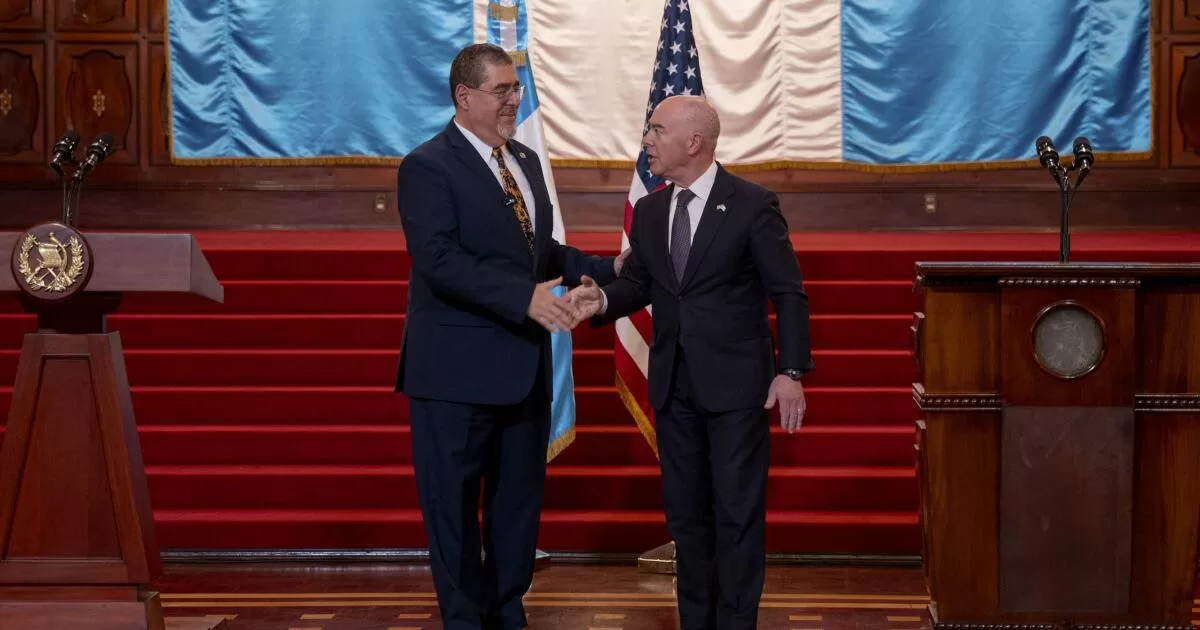“Your leadership can help rebuild the Guatemalan people’s trust in their institutions, and give them a sense of hope and opportunity,” Harris said.
The Democratic vice president announced that her efforts to address the root causes of migration by improving economic opportunity in the region has generated $5.2 billion in private sector commitments.
“The problems, of course, did not occur overnight, and the solutions will not be achieved overnight,” Harris said. But there has been short-term progress, she said.
Migrants from Guatemala, El Salvador and Honduras — an area known as the Northern Triangle — have long made the journey north to the U.S.-Mexico border. Successive administrations have struggled to manage the flow of migrants, and it’s become a humanitarian and political challenge for President Biden during this year’s election. Democrats and Republicans in Congress say the nation’s immigration system is broken, but efforts by lawmakers to address the problems have failed.
Harris and Arévalo discussed the Biden administration’s use of so-called “safe mobility offices,” which were set up in Guatemala, Colombia, Costa Rica and Ecuador in the fall, among other immigration matters. The safe mobility offices are designed to streamline the U.S. refugee process so migrants apply where they are and avoid paying smugglers to make the journey north.
The number of arrests for illegally crossing the U.S.-Mexico border nudged upward in February over the previous month to 140,644, although it was still among the lowest monthly tallies in Biden’s presidency. Of those, 23,216 were Guatemalan.
Arévalo took office in January after winning the presidency in August, beating the establishment candidate by a comfortable margin. He is the son of a former president credited with implementing some of Guatemala’s key labor protections, but his strong showing in a crowded field was still a shock.
The politician with a background in academia and conflict resolution caught fire with a message of challenging the country’s entrenched power structure and resuming the fight against corruption.
“Your election has brought a sense of of optimism to the people of America and around the world,” Harris said. “And despite the challenges that have been posed to Guatemala’s democratic process, the United States was proud to stand with you, Mr. President, following a free and fair election.”
Arévalo thanked Harris and the U.S. for their support.
“I view this as a historic moment in relations between our two countries, which share basic values and common interests,” Arévalo said.
Long and Megerian write for the Associated Press.
